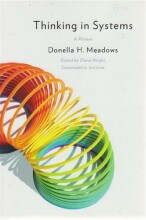Digital transformation - Artikel: Understanding digital transformation: a research agenda
12 important questions on Digital transformation - Artikel: Understanding digital transformation: a research agenda
Vial (2019) researched what we know about Digital transformation. How does the author define DT?
What is the conceptual definition of DT by the article?
Vial (2019) developed a framework in which the building blocks of a DT process on the organizational level is described. How is DT defined in this context?
- Higher grades + faster learning
- Never study anything twice
- 100% sure, 100% understanding
One of the building blocks is disruptions. What are the three disruptions discussed by Vial (2019)?
Due to increased access to information and communication capabilities, consumers became an active participant in the dialogue between organization and stakeholders with increasing expectations.
- Competitive landscape
Digital technologies disrupt markets by new (re)combination possibilities, new forms of digital offerings and lowering barriers to entry.
- Availability of data
beyond the operational value, DT is also able to generate data and use it to exploit potential or sell it.
What are the three types of disruptions?
- Consumer behaviour and expectations
- Competitive landscape
- Increasing the availability of data
What is the difference between the following value network strategies: disintermediation, remediation and network-based mediation?
Remediation; close collaboration and coordination among participants, e.g. Using a platform.
Network-based mediation; complex relationships among multiple stakeholders.
Value creation paths: what are the four prominent changes to compete in the digital world?
- Value propositions (new)
- Value networks (1. Disintermediation - direct exchanges 2. Remediation - close collaboration 3. Network-based - stakeholders)
- Digital channels (distribution and sales)
- Agility and ambidexterity (adapt to changes in the environment)
Vial (2019) refers to four important structural changes to create the new value creation paths. What are these structural changes?
- Organizational culture, in which she argues that a digital culture needs to be developed which is characterized by the willingness to experiment and take risks with digital technologies.
- Leadership; to develop a digital mindset
- Employee role and skills; roles that were traditionally outside of their functions.
What are important structural changes
- Organizational structure (organization and IS strategy together)
- Organizational culture
- Leadership (create a digital mindset)
- Employee roles and skills (roles that were traditionally outside of their function --> Develop analytical skills)
As barriers fo DT at the organizational level Vial (2019) describes inertia and resistance. Elaborate on these
Resistance; people are innovation tired, resisting further change.
What are the positive impacts on both organizational and societal level, and what are the negative effects on societal level?
- Organizational level; operational efficiency and organizational performance.
- Industry/societal; improving quality of life, e.g. Healthcare
Negative effects;
- security and privacy
Vial (2019) describes a research agenda including two main avenues with which strategic implications of DT and dynamic interrelations can be better understood. What are those two main avenues?
- Org. Dynamics capabilities to support ongoing DT in a firm
- Role of integrative capabilities in the context of platforms and ecosystems
- how DT unfolds in practice (micro)
2. Strategic importance of ethics in the context of DT
The question on the page originate from the summary of the following study material:
- A unique study and practice tool
- Never study anything twice again
- Get the grades you hope for
- 100% sure, 100% understanding
































